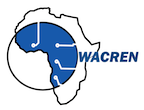Speaker
Dr
Robert Janz
(Project manager)
Description
NRENs not only serve closed user groups on a not-for-profit base, but also on a not-for-loss basis. The primary customer base of NRENs consists of research and higher education institutions and the NREN often have to compete for the provision of Internet services with large monopolists or (even larger) commercial companies. Emerging NRENs more than often face challenges to convince government and other potential donors that they are more than a commercial Internet Service provider and need extra support to survive. In order to survive there are several strategies that other NRENs have deployed and can be used as examples by emerging NRENs.
First, the classical approach, is to bind Higher Education and Research by providing additional services that are not provided by standard ISP's. Examples of such services are Federative Identity Management, access to on line educational content, access to shared facilities such as High Performance Computing and massive storage.
A second approach can be to broaden the primary customer base to other related customer groups, such as libraries, hospitals and NGO's. The national regulator might object to this approach, but examples of successful expansion of the user groups are known and the expanded user group provides a more solid base of the business model.
A third approach is to broaden the profile of the impact of the NRENs in the area of the public good. The most used argument of the added value of NRENs is that ICT in Higher Education is necessary to boost the economy of a country as they will pave the way to an ICT oriented service economy. There are however examples of areas where a sustainable NREN has added value for the country as a whole, such as health care, rural area development, millennium goals and even tourism.
No NREN, existing or emerging, is the same, neither are the national setting circumstances the same. There is there no one size fits all solution, but by giving an overview of existing strategies emerging NRENs can pick the most most suitable tactics as part of their own strategy.
Primary author
Dr
Robert Janz
(Project manager)
Peer reviewing
Paper
Paper files:

